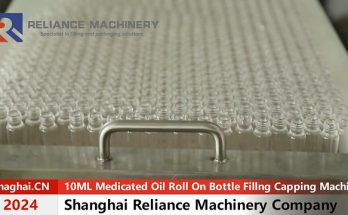Filter For Wells Protects Your Household From Harmful Contaminants
A filter for wells protects your household from harmful contaminants. A wide range of systems are available, depending on your water needs.
Well water is pulled from aquifers that are formed by sand, sandstone, fractured rock and gravel. Anything in the soil can make it into the groundwater, including hard water minerals, organic chemicals, feces and microorganisms.
Water Softener
A water softener is a whole-house filtration system that eliminates hardness from your well water. Hard water wreaks havoc on plumbing and appliances, leaving mineral deposits that can clog pipes or shorten the life of appliances like hot water heaters.
A quality well water softener uses an ion exchange process to remove hardness-causing calcium and magnesium minerals from your home’s water. As the water flows through a mineral tank, it passes through a bed of spherical resin beads that are charged with sodium ions (also called anions). Since opposite charges attract, the positive calcium and magnesium cations in your hard water are attracted to the negative sodium ions in the resin beads. The cations are trapped in the resin beads, while the anions are discharged from the system through the drain.
During the regeneration process, the resin tank is flushed with salt and water. When filter for wells the resin tank is flushed, the opposite-charged calcium and magnesium cations are attracted to each other, and they’re removed from the system along with the salty water that’s drained away. Once the mineral tank has been flushed and recharged, the water softening process begins anew.
The best way to find the right well water softener for your home is to talk with a trusted filtration company that specializes in well systems. These companies understand the nuances of well water filtration and can help you choose the right size for your home and the features that will make your life easier. For example, a smart usage monitoring system can be added to your brine tank to prevent overusage and provide timely service notifications to ensure consistent performance and efficiency.
UV Filter
The UV light filter is designed to kill bacteria in your well water. It can also reduce chlorine, odors, and other chemicals in your drinking water. It can be used alone or with other filters such as sediment and carbon block. It is ideal for well water that has a lot of sediment.
When choosing a UV filter, consider its optical quality. A higher optical quality means the filter allows more light to pass through the lens, which can improve contrast and image clarity. Also, look for a filter that is constructed using high-quality glass and multi-layer coatings. This helps to reduce lens flares and ghosting, which can degrade image quality.
Another thing to keep in mind is that UV filters do not protect the camera lens from physical damage. They have much weaker elements than the lenses themselves, and dropping a lens with a UV filter on will likely cause it to break just as easily as it would without one.
Despite the fact that it does not protect against internal lens damage, a UV filter can be useful as a lens protector. Many photographers use them to reduce flare dots, which are a common problem with some fast prime lenses under bright sunlight. They can also be useful for protecting the lens from scratches and fingerprints.
Sediment Filter
A sediment filter is the first step in any water filtration system. It filters out solid particulates in the water such as rust water treatment system for house flakes from corroded galvanized plumbing, clay, silt, and grains of sand. These can be carried into your home from rainwater, ground water flows, or by the condition of your well.
A water filtration system with a sediment filter prevents these solid particles from reaching appliances and fixtures in your household. It also helps protect the efficiency of installed filtration equipment such as water softeners, reverse osmosis, and UV purification systems.
There are a variety of different sediment water filters available on the market including pleated, melt-blown, string-wound and bag types. A sediment filter’s capacity to capture particulates is typically rated in microns. The higher the micron number, the larger the particles it will remove.
The PS-2000S Sediment Filter is a heavy duty filter that features innovative technology that allows you to “flush” it with a simple switch to clean it out when it becomes full of debris. This saves you the cost of replacing a sediment filter and reduces the amount of time you spend changing it. It is the perfect choice for wells that have lots of sediment in their water. This patented system is the most advanced and longest lasting sediment filter on the market.
Iron Filter
Iron in well water is a common problem, especially in older wells. When elevated levels of iron are present, the water can taste bad and may cause staining in fixtures, appliances, and clothing. Fortunately, well water professionals have solutions to address these issues.
A well water expert can test the quality of your water and recommend the best system for your needs. Depending on the results of your testing, an iron filter can be the right solution to remove iron and reduce other contaminants from your well water.
An iron removal filter can use an oxidizing bed to convert ferrous iron into insoluble iron, allowing the particles to be easily filtered out of the water. An oxidizer bed can contain greensand, potassium permanganate, oxygen, chlorine, or another oxidizing agent.
Another option for removing iron from well water is to use an air injection system. This type of system uses the same technology used in water softeners to inject air into the cation-exchange resin tank, which then draws salt from a brine tank and regenerated the resin. The oxygen in the air also acts as an oxidizer and can help to remove iron, hydrogen sulfide, and manganese from well water. However, the system requires regular maintenance and can be expensive to run. It is also not suitable for high levels of iron in the well water.

